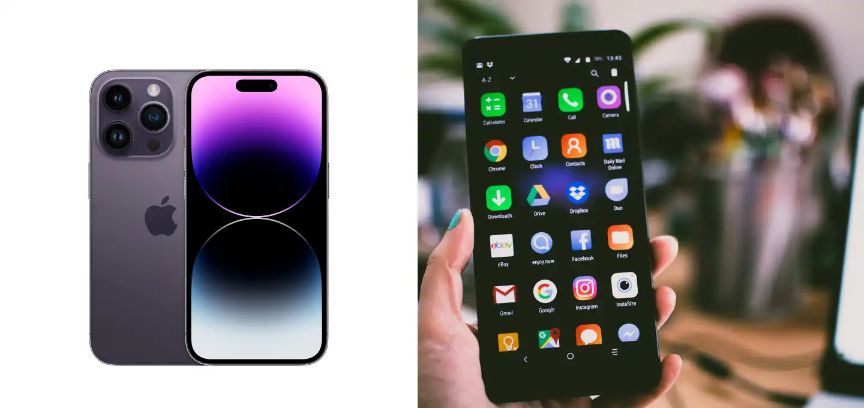iPhone vs. Android: Which Operating System Reigns Supreme?
3 min read
16 May 2024
The battle between iPhone and Android users is a long-standing and passionate one. Both operating systems, iOS for iPhones and Android for a variety of smartphones, have their loyal followers who vehemently defend their platform of choice. In this article, we'll compare the two operating systems across several key aspects to help you decide which one reigns supreme for your needs.
Ecosystem and Hardware Integration:
iPhone (iOS): Apple's iOS is known for its seamless integration with other Apple devices like MacBooks, iPads, and Apple Watches. This ecosystem offers features like AirDrop, Handoff, and Continuity that allow for smooth transitions between devices. iPhones also tend to have a unified and minimalist design.

Android: Android is more diverse in terms of hardware manufacturers, offering a wide range of choices. While this diversity can be a pro for those who prefer options, it can also lead to fragmentation issues, with some devices receiving updates slower than others.
App Selection:
iPhone (iOS): The Apple App Store is renowned for its strict app quality control and rigorous review process. This results in a curated selection of apps that tend to be well-designed and secure. However, it can be more challenging for developers to get their apps approved.
Android: The Google Play Store has a larger number of apps, but its more open nature can lead to a wider range of app quality. While this can be seen as a pro for developers, it also means there's a higher risk of encountering malware or poorly designed apps.
Customization:
iPhone (iOS): iOS is known for its simplicity and consistency, which can be a pro for those who prefer a straightforward user experience. However, this simplicity can come at the cost of limited customization options compared to Android.Android: Android offers extensive customization options, allowing users to tweak their interface, install custom launchers, and personalize their experience to a greater extent. This flexibility can be both a pro and a con, depending on user preferences.
Security:
iPhone (iOS): iOS is often praised for its robust security features, including frequent security updates, app sandboxing, and strong encryption. Apple's control over the hardware and software ecosystem contributes to this reputation.
Android: While Android has made significant strides in improving security, its open nature makes it more susceptible to malware and security vulnerabilities. However, Google has implemented various security features, such as Google Play Protect, to mitigate these risks.
Pricing:
iPhone (iOS): iPhones are known for their premium price tags, and Apple offers a limited range of models at different price points. If you're looking for a budget-friendly option, iPhones may not be your best choice.
Android: Android offers a wider range of price options, from budget-friendly smartphones to flagship devices. This makes Android more accessible to a broader audience with varying budget constraints.
Updates and Longevity:
iPhone (iOS): Apple typically provides iOS updates for a longer period, ensuring that older devices continue to receive the latest features and security updates. This contributes to the longevity of iPhones.
Android: Android updates can vary significantly depending on the device manufacturer and carrier. Some Android devices may receive updates for a shorter period, leading to a potentially shorter lifespan for certain models.
Voice Assistants:
iPhone (iOS): iPhones come with Siri, Apple's voice assistant, which has improved over the years. However, Siri is often considered less capable than its competitors.
Android: Android devices typically come with Google Assistant, which is known for its robust capabilities, including natural language processing and integration with Google services.
Privacy:
iPhone (iOS): Apple has placed a strong emphasis on user privacy and data security. Features like App Tracking Transparency and on-device processing of Siri requests prioritize user privacy.
Android: Google collects more user data for advertising purposes, although it has also introduced features like privacy dashboard and app permissions to enhance user control over data sharing.
The choice between iPhone and Android ultimately depends on your individual preferences and priorities. If you value a tightly integrated ecosystem, simplicity, and strong security, an iPhone may be the right choice for you. On the other hand, if customization, a wide range of hardware options, and budget-friendly choices are more important, Android might be the better fit.Both operating systems have their strengths and weaknesses, and both offer unique features and experiences. The best operating system for you is the one that aligns with your needs, preferences, and budget, so take the time to consider what matters most to you before making your decision.



